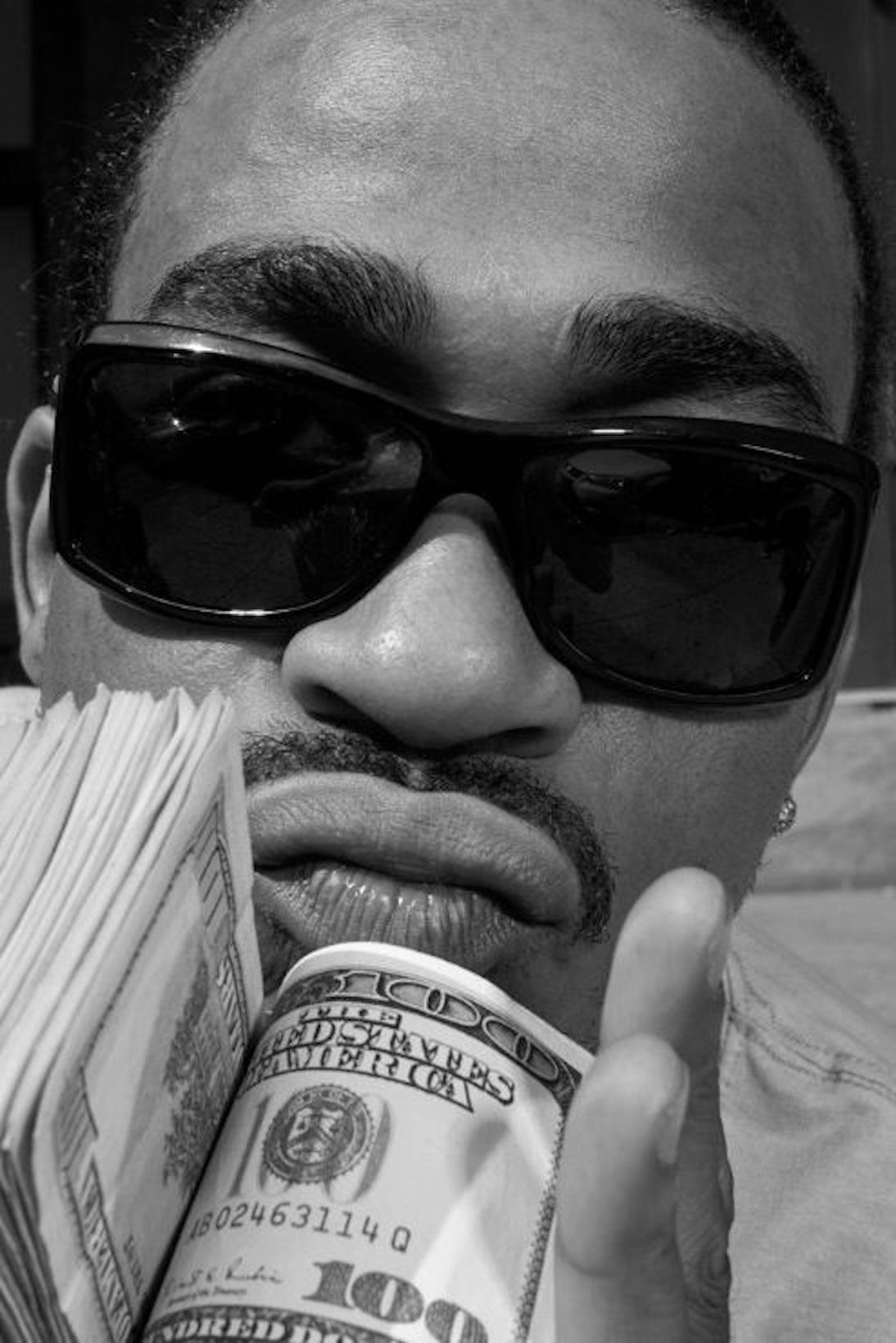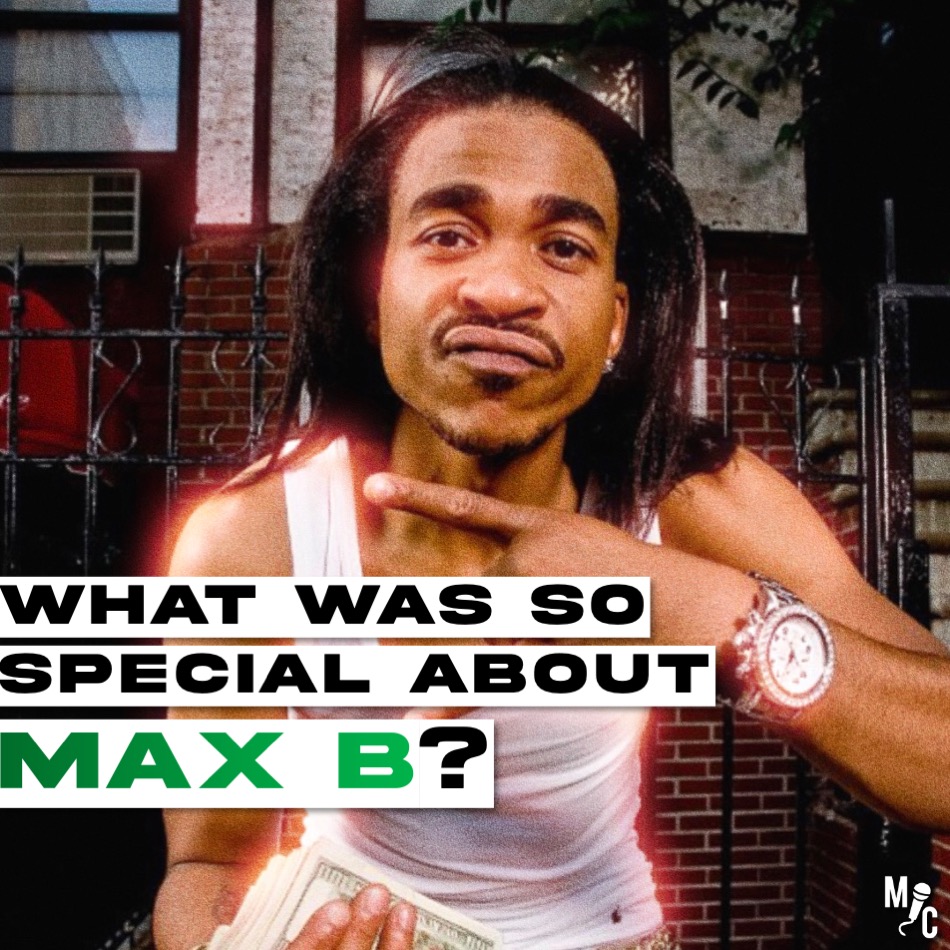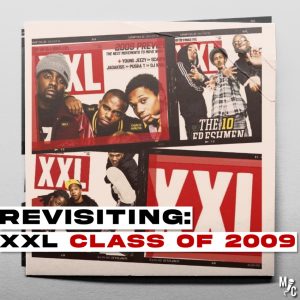Let’s takes it back to a peculiar time in the culture, shall we? The physical mixtape era was reaching a conclusion with the ban on bootlegged tapes transitioning from bodega shelves to blog spots. As many struggled to learn the new algorithms and methods, one rapper stood out amongst a tide of individuals and created his own wave–Harlem’s own silver surfer, Max B.
A name you’ve either heard of loosely or know all too well, Max B was a loose Dipset affiliate who associated under the Jim Jones Byrdgang umbrella. The upcoming street collective flooded the New York streets with Jimmy exposing the talents of Max B, Stack Bundles (R.I.P.), Mel Matrix, and many more. Among the list of names, Max B stood out the most as he flexed a diverse style of melodic, yet gritty tones. As disputes rose among Max and Jim, the solo career of Max B garnered a balance of acclaim and infamy. But why? Today we look at the career of Max B and how his trailblazing efforts etched a legacy of underground glory.

To give a brief biography, Max B (born Charles Wingate) was born and raised in Harlem, New York throughout the rigorous 80’s era of New York City. The oldest of eight siblings, Max – or Charley – was raised by his grandparents as troubles occurred throughout the household of his immediate family. Growing up, Max was heavily influenced by music, joining the Boys Choir of Harlem at a young age. Max was also a close friend of the Dipset icon, Cam’ron, who initially didn’t take notice of Max’s musical ambitions due to his heavy involvement in New York street life. The wave would fall down a troublesome path as he faced an 8-year sentence for robbery in 1997.
Upon his release in 2005, Charles would wasted no time attending to his music career, approaching his friend, Cam, for guidance. One thing would lead to another and the future of Max’s career would fall in the hands of Jim Jones, who would sign Max to the newly established Byrdgang imprint.
Initially, the two would go on to make classic records alongside various talented minds in the group, such as the late-great Stack Bundles. While everything seemed to flow like water above the surface, the wave would hit behind the scenes as it was noted that those under the Byrdgang imprint were alleged ghostwriters for Jim Jones. Max was an immediate standout from the group, which allowed for him to detach from the madness later on, but would remain under contract limbo as Jim would hold the rights to whether his artists were able to release their individual debut projects. This would drive Max to release his own wave of mixtapes, utilizing his relentless Harlem-bred hustle to get his own word out on the streets. Constant disputes and the usual miscommunication would end their relationship and would leave Max as an unofficial solo act.
Hold a conversation with any Max B fan and they’ll be quick to tell you how mesmerizing the music can be. Compared to his lyrical peers, Max wielded a loose rapping style, adapting to any beat he could get his hands on. With his first release from prison landing amidst the mixtape era, Max was quick to put his own spin on popular records. The budget was small with no major label support at his disposal, so he opted for a more raw format in order to display his talent. Whether it was “Can’t C Me” by 2Pac or The-Dream’s “Shawty is the Shit”, Max B’s range was limitless as he treaded across multiple musical styles.
As Max B developed artistically under the Byrdgang camp, his unique approach to each track assisted in the construction of his image, allowing him to quickly branch away once tensions arose. The heavy emphasis on melodies made it obvious to point out who was reaping the benefits of his writing, but this tenure still spawned multiple classic records like “G’s Up” and “We Fly High”—joints that Max B penned. Jimmy wasn’t too keen on artist development.
Truth is, Jim himself took a while to creatively flourish, so some tools still weren’t on standby. With a clear understanding of street promo and a homemade buzz, Max was able to grind on his own behalf and build what would become an underground empire. However, the price of infamy would come at a drastic cost.
Tensions begin to build between the wave and the Byrdgang CEO when Max first linked up with French Montana. Max would inherit the feud due to the contractual disagreements between him and Jim with other factors like fake posting Max’s bail adding fuel to the fire. Though diss tracks would continue to be traded between both camps, Max kept working, relentlessly releasing mixtape after mixtape. However, with the internet coming to the forefront of the culture, Max would begin to document a good portion of his antics, including any and every way of disrespecting Jim Jones’ name.
What seemed like a personal feud would end up costing Max a lot of industry relationships. Though he was able to provide for himself on a financial scale through his independent hustle, Max would miss out on a gang of opportunities that could’ve propelled his career to international stardom.
While his antics may have helped in holding his career back from an industry standpoint, Max solidified himself as an underdog in the culture, rallying the support of many based off his eccentric personality alone. His insane work ethic would serve as a main contributor to the modern-day independent blueprint, relying on supplying a dedicated fanbase with floods of new content.
In addition, Max would utilize the newly popularized YouTube platform to share his music and upload other bits of content like video logs and webisodes that would help put his eclectic personality on display.
In some cases, Max was a true pioneer of incorporating newfound internet resources into brand establishment while never shying away from any new pieces of technology or software to strengthen his movement.
Had it not been for the untimely incarceration of Charles Wingate in 2009, we would’ve been blessed to see the miraculous upbringing of an underground kingpin that was gatekept from the industry his entire career.
In June 4, 2009, Max B would face 75 years in prison, being found guilty on 9 of 11 counts of an armed robbery gone wrong. Many assumed Max would lose all buzz following the establishment of his sentence, but it only propelled his infamous image even further, leaving fans everywhere shouting “Free Max B” through forums across the internet.
As time passed, the time for the sentence has been shortened, which is a blessing, but it continues to leave us wondering how big Max B would’ve gotten had he not went to prison.
The polarizing case of Max B comes with a lot of baggage to unpack. No matter how you feel about the mischievous maestro there’s no doubt that he’s forever etched his name in hip-hop forever. But as the title asks, what really was so special about Max B? How did this street dude from Harlem manage to shroud his name in infamy while winning the support of hip-hop heads everywhere? The answer – his sheer authenticity. When Max B came onto the scene, we were amidst a time where artists were either being questioned for their street credibility or their artistic integrity. Even the biggest of names couldn’t escape slanderous agendas that may or may not have been true.
With Max B however, not a blemish was found on his resume no matter how hard haters searched. Max was an authentic figure from the jump and was clear about his artistic vision, allowing no one to derail his mission.
The unfortunate ending to the story of Max B contributed to the modern day discussion of how far “keeping it real” goes in today’s culture, but the silver surfer himself will always be credited as one of hip-hop’s biggest trailblazers, wielding one of the genre’s most influential catalogs and forever shifting the course of music.




